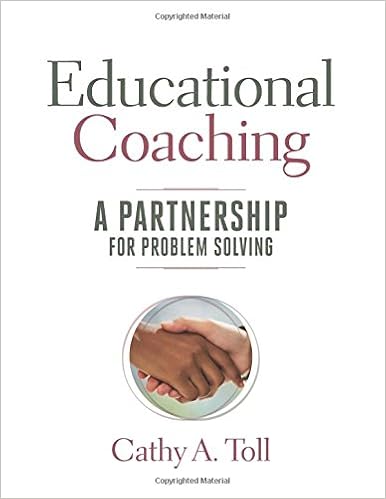
I discovered this book in one of the multitude of educational e-mails that trickle/flood into my in-box. I'd received some negative feedback about professional development sessions last school year, so I was keen to explore some other options. I asked a colleague if she would be willing to bring it back from the US for me. She agreed, and so the book was ordered and delivered. Sadly, it nearly didn't make it, when luggage got lost/damaged in transit. Happily, it did arrive, somewhat battered, but still readable. I process new content better when I write about it, so here comes another series of "Book Reflections".
Chapter 1: Coaching 101
This chapter asks and answers three questions: What is educational coaching, how does it differ from other forms of professional development, and what qualities do coaches need?The author gives the following definition of educational coaching: "Educational coaches partner with teachers for job-embedded professional learning that enhances teachers' understanding of students, the curriculum, and pedagogy for the purpose of solving problems that impede teacher success and pursuing interests that enhance teacher success. (p.6)"
As I read that definition, it boosted my confidence, as it reminded me that my role isn't to be the "expert" but more to support exploration of a variety of ways of meeting the needs of teachers and students.
While I like to participate in educational conferences and similar events, I also know that I learn best by "doing". The coaching model outlined in this book will help me help teachers learn by doing, and by enhancing what they already do well.
The question of the qualities coaches need is answered using the acronym CAT. Those three initials stand for
Connectivty,
Acceptance, and
Trustworthiness.
These qualities of a coach fit beautifully in the relational model that is at the foundation of education at East-West International School. Just as students learn best in the context of good relationships, so too do teachers. Building those relationships isn't something that comes easily for me, but it is something that I want to excel in. Therefore I'm going to be taking the advice of one of my other summer reading books, and making the effort necessary to change people's perceptions so they know that I am for them, and that we are learning together. Listening and asking questions and then listening some more are going to be key to the success or failure (but I'm not interested in failing) of my forays into coaching.
Just before the end of the chapter, the author draws a comparison between educational coaching and sports coaching. She likens educational coaching to "developmental coaching" where the goal is to help individuals grow - it tends to be more supportive and softer. I know that's the kind of coach I want to be.
That's it for this chapter. Stay tuned for more reflections in the coming days/weeks.
![Kindness: Change Your Life and Make the World a Kinder Place by [Hasson, Gill]](https://images-na.ssl-images-amazon.com/images/I/41kyvS1QXcL.jpg)
![You Are Awesome: Find Your Confidence and Dare to be Brilliant at (Almost) Anything: The Number One Bestseller by [Syed, Matthew]](https://images-na.ssl-images-amazon.com/images/I/5192LYQL80L.jpg)



